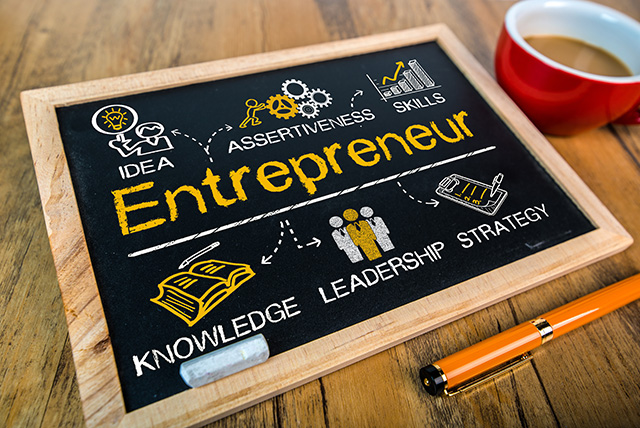If you are going to like being a founder, you must have a passion for doing it. Those words are easy to say, and you’ve probably heard it before, but what does having a passion really mean? If passion isn’t there, it can’t just appear. It must be present automatically. And if it isn’t there, don’t go forward! Being a founder of a startup is not easy, and it is certainly not for everyone.
How do you know if your passion exists? In my mind, it means that working for your startup’s interests must not feel like a burden to you. You must not resent the effort. You must be of a mindset that while you are at work, you lose track of time and can’t quite believe it when the day comes to an end.
What is the source of this passion, and what drives it? There can be multiple motivators. For me, two categories of motivators stand out:
Motivator #1: Purpose-Driven Passion
Firstly, and probably most commonly, a founder’s passion is a deep, personal, purpose-based enthusiasm for the product or service their new company is trying to offer. Often, founders will start a company because they fervently believe in their company’s purpose. Maybe their own lives have had a long-felt need for a missing product or service that they strongly WISH were on the market, but they have been unable to find it. Then, their passion becomes making sure that their product becomes a reality.
In one example, I recall a young entrepreneur – a recent student of mine – who wanted to develop a tracking bracelet for the elderly and/or the mentally disabled. Effectively, the idea was to create a safety device such that family members could track the wearer and be alerted if the wearer went outside a predefined and very localized geozone. More than that, the design allowed for breadcrumb tracking, so that the wearer could be located quickly. Why did my student have this passion? Because his grandfather suffered from Alzheimer’s, and had wandered and gotten lost outside their home. Hours of panic ensued before Grandpa was found, trembling with cold, in the woods nearby. The event was certainly traumatic for the whole family. Thus, the grandson had a deep passion to find a better way.
Motivator #2: Lifestyle-Based Passion
Distinctly different from purpose-based passion, founder passion can also come from a founder’s desire for an own-your-own-business lifestyle. I call this type of passion ‘lifestyle-based passion’. Judging oneself for the existence of this type of passion (or the lack thereof) is quite complex, because often I’ve seen founder wanna-bees who think they have a passion for being their own boss, only to find out that the reality doesn’t match up with the expectation.
Years ago, we had a very close friend who was a successful upper-middle manager at a global tech company. At the time, my husband and I were in the early stages of growing a manufacturing company that provided automation machinery to other manufacturing companies. Our friend was constantly interested in comparing his lifestyle to ours. Here’s what he saw:
The “Perks” of Being Your Own Boss
If my husband and I wanted to take a break in the middle of the afternoon to go see our kid’s school play, we did it. If we wanted to go play golf on a Thursday morning before work, we did that, too. And if we wanted to take a long weekend and not come back until Monday afternoon, we didn’t hesitate. And most importantly, our friend noticed that we asked no one for permission.
In comparison, our friend did not enjoy these luxuries. He had a 9-to-5 job with a bunch of coworkers and supervisors who all shared a strict 9-to-5 mentality. Our friend was allocated a certain number of vacation days per year, and once those were gone, they were gone. Simply put, our friend was very, very envious of what he perceived to be our “owners’ privilege” lifestyle. It was getting under his skin that he had to ask permission for absences and we did not. As time went by, he obsessed about it. We tried our best to explain that for all of these “perks” that he wished he had, the realities of founding and running a business are not so straightforward as he saw them.
Eventually, our friend begged us to let him invest in one of our businesses to become a junior partner. Our company was, at the time, very cash poor. We needed an investment. But we worried about partnering with a friend. Eventually, we said yes, and with zero hesitation our friend quit his regular job. Clearly, he believed that his future was going to be awesome; he had now joined the “Owner’s Club” of life! Ahhh, the sweet lifestyle of being your own boss.
Reality Finally Sets In
Within a few short weeks, reality harshly raised its ugly head. What our friend did not see – and could not anticipate – was the fact that for every instance we left early, came to work late, or took a random day away from the office, there was an abundance of late nights, all-nighters, and out-of-town trips to customers to solve problems that had an unpredictable time-to-resolution. Sometimes we traveled to clients for what we thought would be a two-day trip, but ended up staying a week or more. On top of this unpredictability, our friend just didn’t understand how to relate to being in a constant 24/7 state of “on-call”. He started to realize that my husband and I were always working to some extent, even while relaxing. Our friend simply could not adjust to these realities. Perhaps even more importantly, our friend’s wife, who incidentally was my childhood best friend, could not adjust either. It didn’t take long for us to notice that you could almost set your clock each evening, right around 5 p.m., when his wife would text him, asking impatiently when she could expect him for dinner – and when was he going to be there to help with the kids. More often than not, at 5 p.m. our own day at our company was just getting into full swing. When the other employees were heading home, we were usually still deeply entrenched in dealing with the day’s emergencies.
It is easy to predict the ending. It wasn’t pleasant, and it didn’t happen overnight. In fact, the culture between the owners – my husband, me, and our friend – devolved into an actively antagonistic relationship. Eventually, that particular company closed its doors, and everyone lost their investment monies. And, my husband and I permanently lost a friendship that I would have sworn could not be shaken.
Follow Your True Passion
Not surprisingly, I’ve spent a lot of time reflecting on my own founder’s passion. Do I have a purpose-based passion or a lifestyle-based passion? Turns out, I have both!
Once upon a time, over 20 years ago now, we had a very bad period of low sales volume and negative profitability. My family needed money, desperately, or we were literally going to lose our home. Let me emphasize, those were not fun times! While money isn’t the root of happiness, there are very few things I’ve endured that are more gut-wrenching than incessant money problems that just continue with no end in sight. The worry was taking a toll on my own health and sanity. So, I took desperate action. I posted my own résumé online, and it wasn’t long before I landed a “normal” job. I was swept up by a global manufacturing company. “Ahh,” I thought. “Now here is someone who will appreciate me! The money will be predictable, and I really should stop dreaming about growing my own business. Life is going to be good – and calm.”
Yeah, right.
I HATED every minute of that job. Long story short, the company’s culture where I took employment was just like the culture of our friend’s company. The whole place lived by the clock. Be there from 9 to 5, Monday through Friday – or else. And sadly, they were tolerant of any employee who did just an adequate job, as long as they were there, on time, consistently. If someone was too much of a standout and tried to fix too many things, that was a cause for making your colleagues suspicious of your intentions! (Yeah, that was me.) And Heaven forbid if your kid has a dance recital at 2 p.m. and you decide to go, every single person at the company would watch you leaving early, literally glancing at their watches. It didn’t matter if you came in on Saturday and worked all day or if you stayed late until 8 p.m. twice a week to finish things up that you wanted to get done. Why didn’t it matter to them? Because no one else was there to see you do it! No one cared.
For that company, any many like it, the mantra is, “Just fill your seat from 9 to 5, and life will be good.” Despite my personal distaste for that type of culture, life WAS good at that company. Most of the employees had been there for many, many years., and they were quite happy. I’m truly glad for them, but it was not for me. I lasted almost three years, all the while moonlighting at my own company, which was still struggling to grow. At the first opportunity I had, I quit that “day job” and have never looked back.
The thing is, unlike my friend, I thrive on being a workaholic, and I enjoy the game of growing and running a business – and it is a game, in every sense of the word. If you don’t see it that way, you shouldn’t be a founder. I don’t mind being on-call every single day, answering emails on Saturday, running a milling machine on Tuesday night, or grabbing leftovers for dinner at midnight after finishing a rush shipment for a customer. I do all of these things because for me, having the knowledge that I can take off at 2 p.m. whenever I please makes it all worthwhile. My whole family relates to this lifestyle, because they all live it with me, and we all appreciate the perks that exist, even when we rarely take advantage of them. I guarantee you, I work a ton more hours per week running my own business than I ever did for that company I described. You would be surprised how few Tuesdays I do take off at 2 p.m., but any time I want to, I can.
Over the years we’ve done everything possible to make our work as portable as possible. Right now, as I write this, it is Thursday at 2 p.m., and I’m headed for a long weekend in Florida with my laptop along for the ride. While I’m vacationing, I’ll work a lot, and I’ll play a lot. To my family and me, that matters. I don’t like being told what I can and can’t do. That’s what makes me passionate for the self-motivated lifestyle it takes to be a founder.
But for me, the lifestyle-based passion isn’t the whole story. I also have a passion for my company’s purpose. I think it is vital that our company continues to do what it does. I think its very existence is important to our society’s future.
What do we do? Simply put, we manufacture things. Lots of very different things.
Over the 40+ years I’ve been in the industry, we’ve amassed a lot of knowledge. We know how to machine things, mold things, cast things, program things, assemble things, test things, automate things, inventory things, and ship things. We also know how to design things properly, so that all those other actions happen smoothly. Basically, we know manufacturing. We know how to get things done – and done properly.
Over the years, I’ve seen this type of knowledge slip away from our own country’s borders, and move to overseas destinations. I’ve seen our local engineers become more and more distanced from the process of how things get made. That worries me. My husband and I both teach university-level engineering classes, and I see engineers becoming more and more ignorant of manufacturing processes each year. It isn’t their fault. They just aren’t exposed to how things get made, and that’s a real shame. It seems obvious if you think about it. How can an engineer be a good engineer if he or she has no idea how to actually make the things they draw? We need to see that this trend changes. That’s my purpose-based passion.
So, my passion has evolved over the years into a two-headed beast. I am passionate about my own lifestyle, and I’m passionate about keeping a knowledge base of manufacturing talent within our country’s borders. The first passion is important for my own personal happiness, and the second passion is important because I believe it impacts our society’s long-term happiness. Bottom line, I love being the founder of a startup. Will you?


